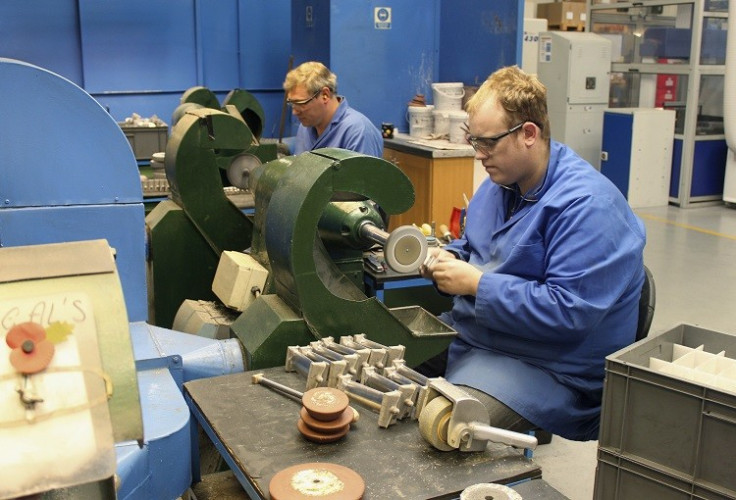Small Firms Booming with Confidence as UK Economy Recovers

Confidence among small British firms is hitting new highs as the domestic economy appears to finally be starting an elusive recovery from the financial crisis.
A headline sentiment index from the Federation of Small Businesses (FSB), a lobby group for SMEs, rose to +33.5 during the third quarter, more than doubling the previous quarter's +15.9 and a far above a negative -4.5 reading in the same period a year before. It is the highest reading since 2010.
It comes amid soaring output from the service, construction and manufacturing sectors and increasingly positive UK growth forecasts from the likes of the Bank of England, International Monetary Fund and OECD.
"Optimism, growth and confidence. These welcome words are finally starting to reverberate around the press and policy world when talking about the UK economy," said John Allan, national chairman of the FSB.
"This is the most positive report that the FSB has published for some time and gives further confidence to policymakers and the government that steady growth is back on the agenda.
"This now needs to be fostered and the Autumn Statement later this year should be the ideal vehicle to do this."
The FSB survey also found an increasing number of SMEs preparing to invest in expansion and expecting to grow over the coming year.
UK Recovery
Britain's economy grew by 0.7% in the second quarter, accelerating from 0.3% growth in the opening three months of the year.
Private industry data compiled by research firm Markit shows service sector output hitting a 19-year high in August, manufacturing firms booming again with activity at two-year peaks, and the construction sector witnessing a "new dawn" with its sharpest growth rate in six years.
A monthly GDP estimate by the National Institute of Economic and Social Research (NIESR), the UK economy grew by 0.9% in the three months to the end of August.
The OECD recently hailed the blossoming recovery in advanced economies across Europe and in the US, but warned it could be blown off course by significant risks from the financial world and the US Federal Reserve tapering its market-underpinning $85bn-a-month stimulus programme.
"There are two major risks. One is that the euro area remains weak and fragile and the financial and banking system needs to be fully repaired," said Pier Carlo Padoan, deputy secretary-general and chief economist of the OECD.
"The other risk is that also triggered by the tapering off of unconventional monetary policy in the United States. These emerging economies are suffering from strong capital outflows and currency depreciation, which could drag [on] their growth further."
© Copyright IBTimes 2025. All rights reserved.




















